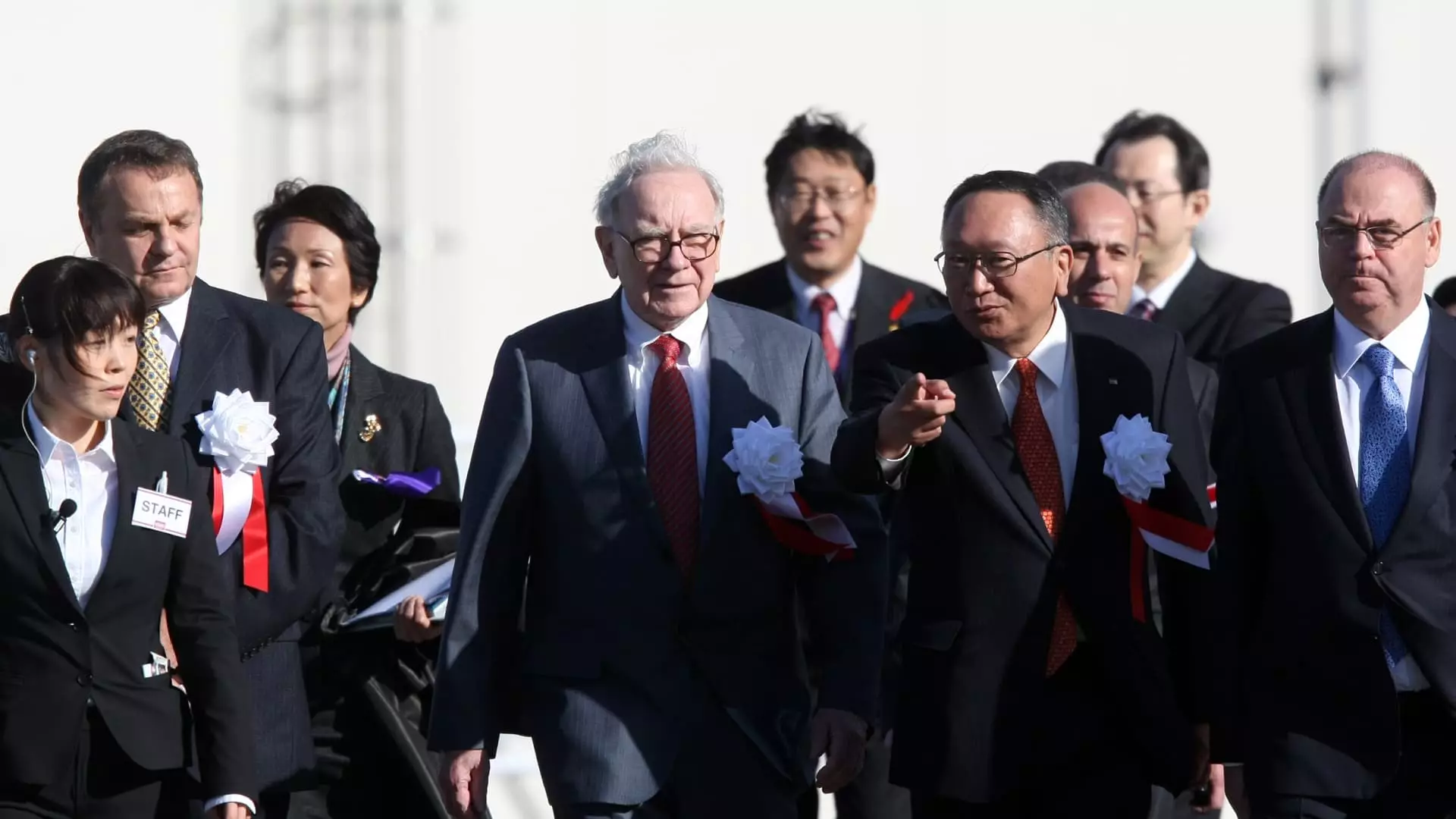In his recent annual letter to shareholders, Warren Buffett reaffirmed Berkshire Hathaway’s enduring commitment to its investments in Japanese trading companies. Initially capped at a 10% ownership limit, Buffett announced a pivotal agreement with these firms that permits Berkshire Hathaway to exceed this threshold in the future. This adjustment reflects not only a vote of confidence in the underlying businesses but also signifies a recognition of their potential for growth. With an aim to deepen Berkshire’s involvement, Buffett hinted at a gradual increase in ownership stakes over time, showcasing a long-term strategic vision that aligns with Berkshire’s historical investment philosophy.
The Japanese entities in Berkshire’s portfolio include a stellar lineup of trading companies: Itochu, Marubeni, Mitsubishi, Mitsui, and Sumitomo. Collectively referred to as “sogo shosha,” these trading houses operate across a multitude of sectors domestically and globally, resembling Berkshire’s own multi-faceted investment approach. Acquired in July 2019, these stakes have now grown substantially, with Berkshire’s Japanese holdings valued at $23.5 billion by the end of 2024, a remarkable appreciation from the initial cost of $13.8 billion. Buffett’s respect for the management teams of these companies, along with their effective investment strategies and solid relationships with stakeholders, underpins this strategic move.
Buffett has shown a keen understanding of the delicate dynamics of currency fluctuations when investing abroad. To finance his holdings in these Japanese firms, Berkshire Hathaway has made the strategic choice to sell Japanese debt and issue yen-denominated bonds—actions that serve to mitigate foreign exchange risks. The company’s recent fiscal report indicated substantial after-tax gains of $2.3 billion from these bonds, with a notable $850 million attributed to 2024 alone, aided by a strengthened dollar. Such financial maneuvering reflects Buffett’s astute approach to investment risk management, catering to both currency neutrality and enhanced earnings potential.
The Future of Berkshire’s Japanese Investments
Looking ahead, Warren Buffett is optimistic about the annual dividend income anticipated from these five trading houses, projecting it to reach approximately $812 million. He expressed his expectation that his designated successor, Greg Abel, alongside future leadership, will maintain these Japanese positions for several decades. This foresight not only highlights Buffett’s confidence in the stability and resilience of these investments but also suggests potential collaborative opportunities for Berkshire and its Japanese counterparts in the years to come.
Recent market performance has been challenging for these trading houses, with Itochu and Marubeni experiencing declines of over 8% and Mitsubishi plummeting by 26%. However, Buffett’s silence on short-term fluctuations speaks volumes about his long-term investment philosophy. The marked volatility in the trading houses’ stock prices is likely a temporary setback in the grander scheme of their trajectories. Berkshire Hathaway’s unwavering commitment and Buffett’s seasoned insight may serve as a beacon of resilience for both the company and its investments in Japan, ensuring sustained growth and profitability in the long run.

